Understanding the Ethics of Nuclear Energy
Nuclear energy has long been a controversial topic, stirring debates that span ethical, environmental, and social dimensions. As we delve into the ethical implications of nuclear energy, it’s essential to weigh both its significant benefits and the associated risks. The conversation around nuclear energy is not just about power generation; it’s about our responsibility to the planet, our communities, and future generations. Can we harness this potent energy source without compromising our ethical standards? This question is at the heart of the ongoing discourse.
On one hand, nuclear energy offers a low-carbon alternative to fossil fuels, a crucial factor in the fight against climate change. It provides a stable and substantial energy supply, essential for meeting the growing demands of our modern world. However, on the other hand, the risks involved—such as radioactive waste, potential accidents, and the long-term impacts on human health and the environment—cannot be overlooked. These factors create a complex ethical landscape that requires careful consideration and transparent dialogue among stakeholders.
As we explore the multifaceted ethics of nuclear energy, we must also consider how public perception plays a pivotal role in shaping energy policy. Trust in regulatory bodies, the media's portrayal of nuclear incidents, and the voices of communities affected by nuclear projects significantly influence public opinion. The ethical implications extend beyond mere energy production; they encompass social justice issues, particularly regarding marginalized communities who may bear the brunt of nuclear development.
Ultimately, understanding the ethics of nuclear energy requires a comprehensive approach that considers historical context, environmental impact, social equity, and public trust. As we navigate this intricate web, we must ask ourselves: How do we balance the urgent need for sustainable energy with our ethical obligations to protect people and the planet?
- What are the main ethical concerns surrounding nuclear energy?
The primary concerns include radioactive waste management, health risks, environmental impact, and social justice issues affecting marginalized communities. - How does nuclear energy compare to renewable energy sources?
While nuclear energy is a low-carbon option, it differs from renewable sources like solar and wind in terms of waste production and safety risks. - What advancements are being made in nuclear technology?
Innovations such as small modular reactors and improved waste management techniques aim to make nuclear energy safer and more sustainable. - How does public perception influence nuclear energy policies?
Public trust in regulatory bodies and media coverage significantly shapes the discourse around nuclear energy, impacting policy decisions and community acceptance.

The Historical Context of Nuclear Energy
The journey of nuclear energy is as complex as it is fascinating, marked by significant milestones that have shaped its ethical landscape. It all began in the early 20th century when scientists like Marie Curie and Albert Einstein laid the groundwork for understanding atomic structure and energy. Their groundbreaking discoveries set the stage for harnessing nuclear fission, which would later become the cornerstone of nuclear power generation.
Fast forward to the mid-20th century, the world was captivated by the potential of nuclear energy, especially after the devastating use of atomic bombs during World War II. The post-war era saw a surge of interest in nuclear technology for peaceful purposes. In 1954, the first nuclear power plant, the Obninsk Nuclear Power Plant in the Soviet Union, began operations, marking a pivotal moment in the history of energy production. This was a time when the promise of cheap and abundant energy seemed within reach, and nations rushed to develop their nuclear capabilities.
However, the optimism was short-lived. The Three Mile Island accident in 1979 and the catastrophic Chernobyl disaster in 1986 served as stark reminders of the potential dangers associated with nuclear energy. These events not only raised serious safety concerns but also ignited public fear and skepticism regarding the reliability of nuclear technology. The ethical implications of nuclear energy began to surface, questioning whether the benefits outweighed the risks.
In the wake of these disasters, the global narrative around nuclear energy shifted dramatically. Countries began to reassess their energy policies, weighing the need for energy security against the backdrop of environmental and safety concerns. The International Atomic Energy Agency (IAEA) was established to promote safe and peaceful use of nuclear energy, but public trust in nuclear technology remained fragile.
As we moved into the 21st century, the discourse surrounding nuclear energy evolved further. The pressing issue of climate change brought nuclear energy back into the spotlight as a low-carbon alternative to fossil fuels. Countries like France and China have embraced nuclear energy as a key component of their energy strategies, while others remain hesitant due to historical events and ongoing safety concerns.
Today, the ethical considerations surrounding nuclear energy continue to be a hot topic. The balance between harnessing nuclear power for its potential benefits and addressing the associated risks is a delicate one. As we look toward the future, it's essential to reflect on the historical context of nuclear energy, recognizing how past events shape current perceptions and policies. Understanding this history is crucial for navigating the ethical dilemmas that lie ahead.
- What were the key events that influenced public perception of nuclear energy?
Major events include the atomic bombings during World War II, the Three Mile Island accident, and the Chernobyl disaster, all of which significantly impacted public trust and safety concerns regarding nuclear energy. - How has nuclear energy been viewed in the context of climate change?
Nuclear energy is often seen as a low-carbon alternative to fossil fuels, making it a potential ally in the fight against climate change, despite the historical risks associated with its use. - What role do regulatory bodies play in the nuclear energy sector?
Regulatory bodies like the IAEA ensure the safe and peaceful use of nuclear technology, helping to establish safety standards and protocols to mitigate risks.

Environmental Impact and Sustainability
The conversation around nuclear energy often brings with it a complex web of environmental considerations. On one hand, nuclear power is heralded as a low-carbon energy source that can significantly reduce greenhouse gas emissions compared to fossil fuels. However, the environmental implications of its production and waste management raise significant ethical questions. As we delve deeper into the environmental impact of nuclear energy, it becomes clear that sustainability is not just about energy production; it’s about the entire lifecycle of nuclear energy, from uranium mining to waste disposal.
One of the most pressing concerns is the management of radioactive waste. Unlike many other forms of energy, nuclear energy produces waste that remains hazardous for thousands of years. The challenge lies in finding safe, long-term storage solutions that do not compromise the health of future generations. Countries like Finland have made strides in developing deep geological repositories, but the question remains: can we ethically impose the burden of radioactive waste on future societies? This is not just a technical challenge; it is a moral one that requires transparent dialogue and community involvement.
When we think about waste management in nuclear energy, it’s essential to consider the ethical implications of our choices. The current methods of disposal often involve burying waste deep underground, but what happens if these sites become compromised? The potential for leaks or contamination poses a significant risk not just to the environment, but also to human health. Moreover, the communities that host these waste facilities often bear the brunt of the risks without reaping the benefits of nuclear energy. This raises critical questions about environmental justice and the equitable distribution of risks and rewards.
Fortunately, advancements in technology are paving the way for safer and more sustainable practices within the nuclear industry. Innovations such as small modular reactors and advanced fuel recycling processes aim to minimize waste and enhance safety. These technologies not only address some of the ethical concerns surrounding waste management but also promote a more sustainable approach to energy production. However, the implementation of these technologies must be accompanied by rigorous safety regulations and transparent public engagement to build trust and confidence in their effectiveness.
Public perception plays a critical role in shaping the discourse around nuclear energy. A lack of trust in regulatory bodies and the media can lead to widespread fear and resistance to nuclear projects. This is particularly evident in communities located near nuclear facilities, where the potential risks often overshadow the benefits. To foster a more informed public dialogue, it is essential to communicate the facts clearly and transparently, emphasizing the safety measures in place and the advancements being made in waste management and sustainability.
Ultimately, the path to a sustainable future in nuclear energy hinges on our ability to address these ethical challenges head-on. By prioritizing environmental stewardship, engaging in open dialogue, and investing in technological innovations, we can work towards a nuclear energy landscape that minimizes risks while maximizing benefits for all.
- What are the main environmental concerns associated with nuclear energy?
Nuclear energy raises concerns primarily related to radioactive waste management, potential accidents, and the environmental impact of uranium mining. - How does nuclear energy compare to fossil fuels in terms of carbon emissions?
Nuclear energy produces significantly lower carbon emissions compared to fossil fuels, making it a crucial player in the fight against climate change. - What advancements are being made in nuclear waste management?
Technological innovations such as deep geological repositories and advanced fuel recycling processes are being developed to improve waste management and sustainability. - How can public trust be improved in nuclear energy projects?
By promoting transparency, engaging local communities, and providing clear information about safety measures and technological advancements, public trust can be enhanced.
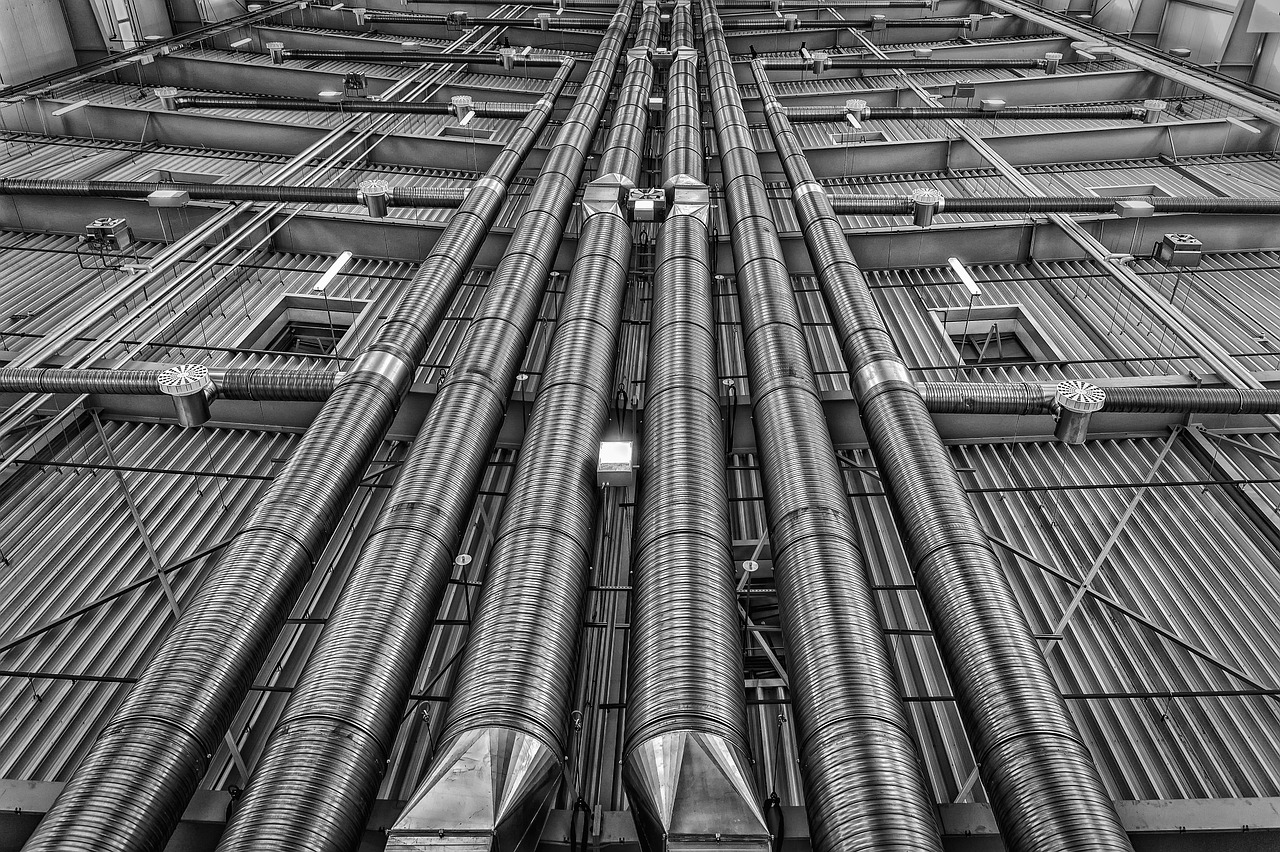
Radioactive Waste Management
When we talk about nuclear energy, one of the most pressing concerns that pops up is the management of radioactive waste. This isn’t just a technical problem; it’s an ethical dilemma that weighs heavily on our shoulders. Imagine a world where the energy we produce today could haunt future generations because of our inability to safely dispose of waste. It’s a haunting thought, isn’t it? The reality is that nuclear power plants generate waste that remains hazardous for thousands of years, and figuring out how to deal with this waste is a monumental challenge.
One of the primary methods currently in use for radioactive waste management is deep geological disposal. This involves burying the waste deep underground in stable geological formations. While this method aims to isolate the waste from the environment, it raises ethical questions about our responsibility to future generations. Are we right to assume that our descendants will remember where we buried this waste? Or will they inadvertently stumble upon it, unaware of the dangers lurking beneath their feet?
Moreover, the challenges don’t end with disposal. The transportation of radioactive materials poses significant risks. Accidents during transport could lead to catastrophic consequences, making the entire process feel like a high-stakes game of chance. The ethical implications of this risk are profound. Are we willing to put communities at risk for the sake of energy production?
To tackle these issues, we must also consider technological advancements that could improve waste management practices. Innovations in waste treatment technology, such as reprocessing and transmutation, aim to reduce the volume and toxicity of waste. These methods hold promise, but they are not without their own ethical dilemmas. For instance, reprocessing can lead to the proliferation of nuclear materials that could potentially be used for weapons. This creates a balancing act between energy needs and global security.
In addition to technological solutions, there’s also a strong need for public engagement in the decision-making process. Transparency and community involvement can go a long way in building trust. If communities feel included in discussions about nuclear waste management, they are more likely to support nuclear energy initiatives. However, if they feel sidelined or ignored, the backlash could be severe. It’s a classic case of “no one wants a nuclear waste site in their backyard,” but what if they were part of the decision-making process?
| Waste Management Method | Description | Ethical Considerations |
|---|---|---|
| Deep Geological Disposal | Burying waste deep underground in stable geological formations. | Responsibility to future generations; long-term safety. |
| Reprocessing | Extracting usable materials from spent fuel. | Potential for proliferation of nuclear materials. |
| Transmutation | Changing the isotopes of radioactive materials to reduce hazard. | Technological feasibility and cost. |
As we ponder these questions, it’s clear that radioactive waste management is not just a technical issue but a profound ethical challenge. The decisions we make today will echo through the corridors of time, affecting not just our lives but the lives of countless generations to come. Are we prepared to shoulder that responsibility?
- What is radioactive waste? Radioactive waste is material that is radioactive and is no longer useful, often produced from nuclear power generation and medical applications.
- How long does radioactive waste remain hazardous? Depending on the type of waste, it can remain hazardous for thousands to millions of years.
- What are the main methods of radioactive waste management? The primary methods include deep geological disposal, reprocessing, and transmutation.
- How can communities get involved in waste management discussions? Communities can participate through public forums, consultations, and by engaging with local governance on energy policies.

Technological Innovations
The landscape of nuclear energy is constantly evolving, with technological innovations playing a crucial role in addressing the ethical concerns surrounding its use. As society grapples with the dual-edged sword of nuclear energy — where the benefits of low carbon emissions clash with the risks of accidents and waste management — advancements in technology are emerging as potential game-changers. These innovations not only aim to enhance safety and efficiency but also seek to build public trust and acceptance in nuclear energy.
One of the most promising developments in recent years is the advent of Small Modular Reactors (SMRs). Unlike traditional nuclear reactors, which are large and complex, SMRs are designed to be smaller, simpler, and more cost-effective. They can be manufactured in factories and transported to sites for assembly, which significantly reduces construction time and costs. Moreover, their smaller size allows for enhanced safety features, such as passive safety systems that can function without human intervention or external power, thereby lowering the risk of catastrophic failures.
Another innovative approach is the exploration of advanced nuclear fuels. These fuels promise to enhance the safety and efficiency of nuclear reactors while producing less waste. For example, fuels like thorium are being researched as alternatives to uranium, as they can potentially reduce the risk of nuclear proliferation and generate less long-lived radioactive waste. The use of thorium could also lead to more efficient fuel cycles, making nuclear energy more sustainable in the long run.
Additionally, the integration of digital technologies into nuclear power plants is transforming how operations are managed. From advanced monitoring systems that utilize artificial intelligence to predictive maintenance technologies, these innovations enhance operational efficiency and safety. They allow for real-time data analysis, which can preemptively identify potential issues before they escalate into serious problems. This proactive approach is crucial in maintaining public confidence in nuclear energy, as it demonstrates a commitment to safety and reliability.
Furthermore, the development of fusion energy represents the holy grail of nuclear technology. Although still in experimental phases, fusion has the potential to provide a nearly limitless source of energy with minimal environmental impact. Unlike fission, which splits heavy atomic nuclei, fusion combines light nuclei, producing energy without the long-lived radioactive waste associated with traditional nuclear power. If successful, fusion could revolutionize the energy landscape, offering a clean and sustainable alternative to fossil fuels and even conventional nuclear fission.
However, it’s essential to recognize that while these technological advancements hold promise, they also come with ethical implications. The question arises: who benefits from these innovations, and at what cost? As we navigate the future of nuclear energy, it will be vital to ensure that these technologies are developed and implemented in ways that prioritize safety, equity, and environmental sustainability. The challenge lies not only in the technological feasibility but also in fostering a societal consensus that embraces these innovations as part of a responsible energy future.
- What are Small Modular Reactors (SMRs)? SMRs are compact nuclear reactors designed for enhanced safety and efficiency, allowing for easier manufacturing and transportation.
- How does thorium fuel differ from uranium fuel? Thorium fuel has the potential to produce less long-lived radioactive waste and reduce the risk of nuclear proliferation compared to uranium.
- What role does artificial intelligence play in nuclear energy? AI technologies enhance operational efficiency and safety by allowing for real-time data analysis and predictive maintenance.
- What is fusion energy? Fusion energy is a form of nuclear energy that combines light atomic nuclei to produce energy, offering a cleaner alternative with minimal waste.
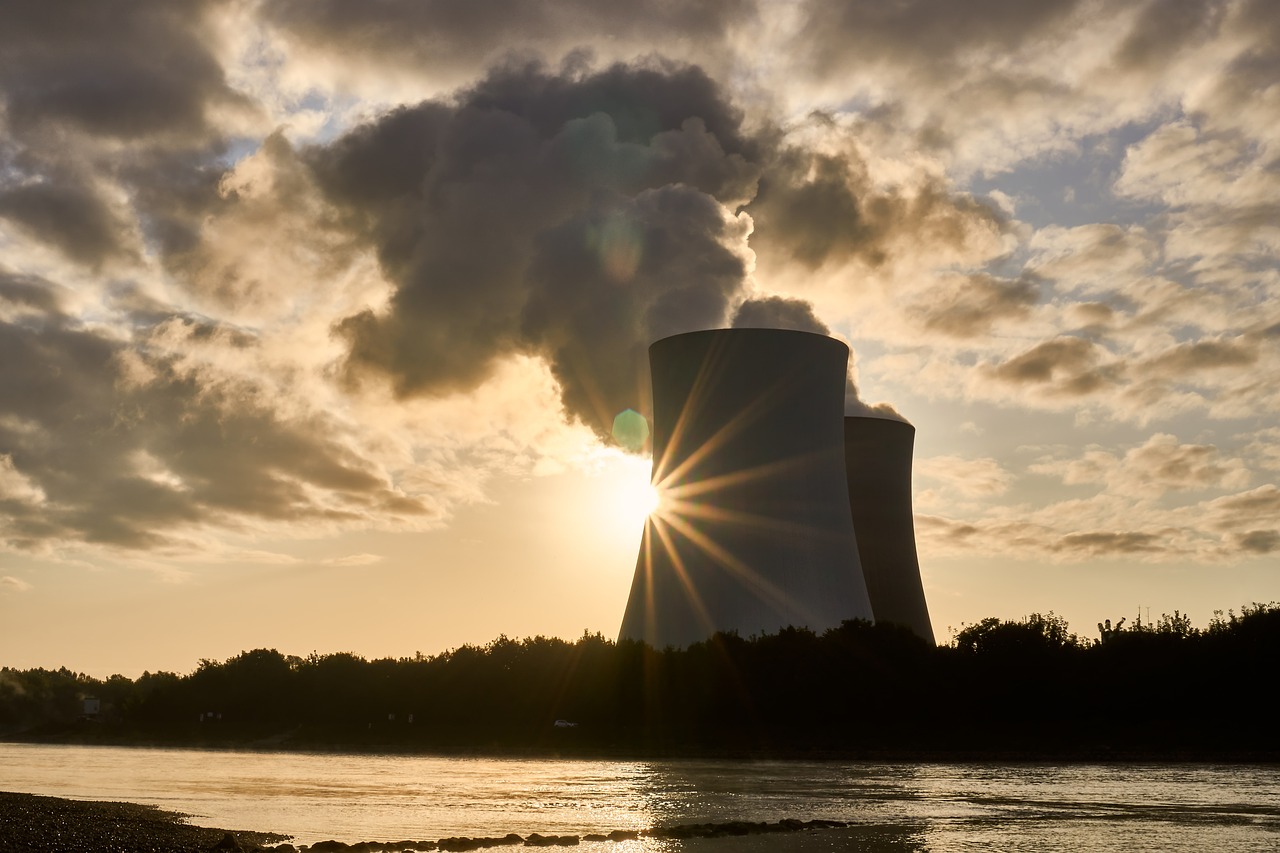
Public Perception and Trust
When it comes to nuclear energy, public perception often feels like a rollercoaster ride—full of ups and downs, twists and turns that can leave even the most seasoned riders dizzy. Trust plays a pivotal role in shaping how society views this powerful energy source. After all, would you want to board a plane if you didn’t trust the pilot? Similarly, the public’s trust in regulatory bodies, scientists, and the media is crucial in determining the acceptance of nuclear energy.
Historically, incidents like the Chernobyl disaster in 1986 and the Fukushima Daiichi nuclear disaster in 2011 have left indelible marks on public consciousness. These events not only raised alarms about safety but also ignited a firestorm of skepticism towards the nuclear industry. Many people began to question whether the benefits of nuclear energy truly outweighed its risks. The fallout from such disasters has fostered a culture of fear, leading to widespread apprehension about the safety and reliability of nuclear power plants.
Moreover, the media plays a significant role in shaping public opinion. Sensationalized reporting can amplify fears and misconceptions, while balanced journalism can help demystify the complexities of nuclear energy. For instance, consider how the portrayal of nuclear accidents often overshadows the advancements in safety measures and technology. The narratives we consume through news outlets can either build or erode trust, making it essential for media to strike a balance between caution and optimism.
In the age of social media, the dynamics of trust have evolved. Information spreads like wildfire, and misinformation can easily lead to public panic. This is where transparency becomes crucial. When regulatory bodies and nuclear companies are open about their operations, safety protocols, and potential risks, they can cultivate a more informed public. Engaging with communities and addressing their concerns head-on can help rebuild trust that may have been lost due to past incidents.
To better understand the factors influencing public perception, we can look at various studies that gauge public sentiment towards nuclear energy. For instance, a recent survey indicated that while a significant portion of the population acknowledges the need for low-carbon energy sources, many remain wary of nuclear energy due to safety concerns. Here’s a quick breakdown:
| Factor | Percentage of Respondents |
|---|---|
| Support for Nuclear Energy | 45% |
| Concern Over Safety | 60% |
| Trust in Regulatory Bodies | 35% |
| Belief in Technological Advancements | 50% |
As we can see from the table, a significant number of respondents express concerns about safety, which highlights the need for ongoing education and outreach. Additionally, the relatively low percentage of trust in regulatory bodies indicates that there is much work to be done in restoring faith in the systems designed to protect the public.
Ultimately, the journey toward a more favorable public perception of nuclear energy hinges on transparency, education, and community engagement. By fostering an environment where questions are welcomed and concerns are addressed, we can begin to bridge the gap between public skepticism and the potential benefits of nuclear energy. It's a complex dance of information, trust, and responsibility that, if navigated carefully, could lead us toward a more sustainable energy future.
- What are the main concerns regarding nuclear energy? Many people worry about safety, radioactive waste management, and the potential for catastrophic accidents.
- How can public trust in nuclear energy be improved? Transparency, education, and community engagement are key factors in building trust.
- What role does the media play in shaping public perception? The media can either amplify fears through sensationalism or help demystify nuclear energy through balanced reporting.
- Are there advancements in technology that address safety concerns? Yes, innovations continue to emerge in the nuclear sector, aimed at enhancing safety and waste management.
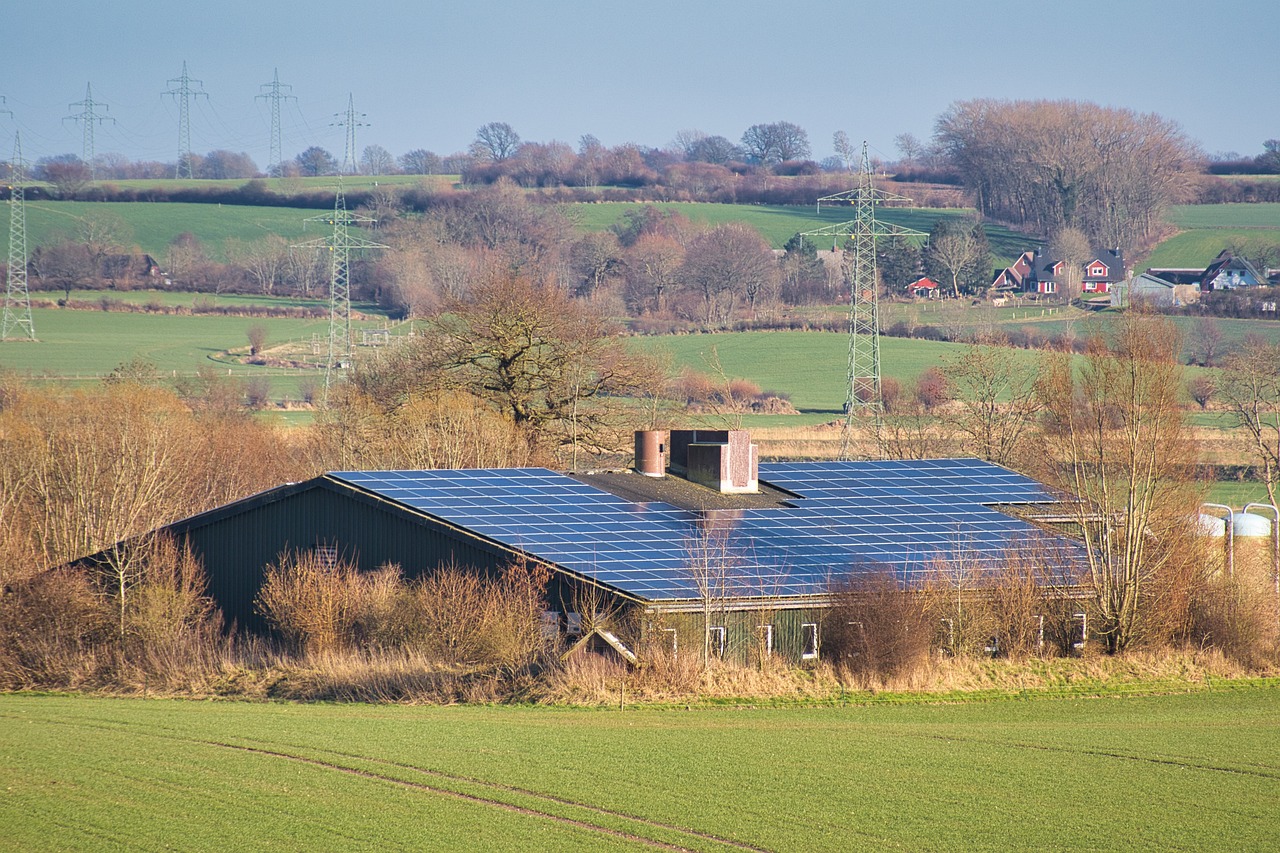
Health Risks and Safety Regulations
Nuclear energy is often touted as a clean and efficient alternative to fossil fuels, but it comes with its own set of health risks that cannot be overlooked. The potential for radiation exposure poses significant concerns for both workers in the industry and the general public. Accidents, though rare, can have catastrophic consequences, as seen in historical events like Chernobyl and Fukushima. These incidents serve as stark reminders of the importance of stringent safety regulations and protocols that are designed to protect human health and the environment.
To mitigate these risks, regulatory bodies such as the Nuclear Regulatory Commission (NRC) in the United States enforce strict guidelines that govern the operation of nuclear facilities. These regulations cover a wide range of safety measures, including:
- Regular safety drills and emergency preparedness plans
- Strict monitoring of radiation levels
- Robust training programs for employees
- Mandatory reporting of any incidents or anomalies
However, the effectiveness of these regulations is often questioned. Critics argue that while safety measures are in place, the potential for human error and unforeseen circumstances can still lead to dangerous situations. Moreover, the psychological impact of living near a nuclear facility can lead to increased anxiety and stress among local populations, even if they are not directly exposed to radiation. This phenomenon is sometimes referred to as the "not in my backyard" syndrome, where communities resist nuclear projects due to fear, regardless of the actual safety record.
In addition to regulatory frameworks, technological advancements play a crucial role in enhancing safety standards. Modern reactors are designed with multiple safety systems and fail-safes that aim to prevent accidents before they occur. For instance, the development of passive safety systems allows reactors to shut down safely without human intervention in the event of an emergency. These innovations are essential in addressing public concerns and building trust in nuclear energy as a viable power source.
Another factor to consider is the long-term health implications of living near nuclear facilities. Studies have shown mixed results regarding the correlation between proximity to nuclear plants and health outcomes. While some research indicates a higher incidence of certain cancers, other studies find no significant risk increase. This ambiguity underscores the need for ongoing research and transparent communication about the health risks associated with nuclear energy.
Ultimately, the conversation around health risks and safety regulations in nuclear energy is complex. It requires a balance between the benefits of clean energy and the potential dangers that come with it. Policymakers, scientists, and the public must work together to ensure that safety measures are not only in place but are also effective and trusted. As we navigate this intricate landscape, it is vital to keep the dialogue open and informed, addressing concerns while also highlighting the advancements made in nuclear safety.
- What are the main health risks associated with nuclear energy? The primary risks include radiation exposure, which can lead to cancer and other health issues, particularly in the event of accidents.
- How are safety regulations enforced in nuclear energy facilities? Regulatory bodies like the NRC enforce safety regulations through regular inspections, mandatory reporting of incidents, and compliance with strict operational guidelines.
- What advancements have been made to improve nuclear safety? Technological innovations, such as passive safety systems and advanced monitoring techniques, have been developed to enhance safety and prevent accidents.
- Is living near a nuclear facility dangerous? While some studies suggest a potential increase in health risks, the evidence is mixed, and ongoing research is necessary to draw definitive conclusions.

Social Justice and Equity Issues
The discourse surrounding nuclear energy is not merely a technical or environmental debate; it is deeply intertwined with issues of social justice and equity. As we delve into the complexities of nuclear energy, we must ask ourselves: who benefits from this powerful source of energy, and who bears the risks? The distribution of both the benefits and the burdens of nuclear energy projects often reveals significant disparities among different communities, particularly marginalized groups. In many cases, these communities do not receive equitable access to the advantages of nuclear energy, such as lower energy costs and improved infrastructure, while simultaneously facing the brunt of its risks, including environmental degradation and health hazards.
One of the most pressing concerns is the impact of nuclear energy projects on Indigenous communities. Historically, these communities have been disproportionately affected by energy extraction and production practices that disregard their land rights and cultural heritage. For instance, many nuclear facilities are located on or near Indigenous lands, raising ethical questions about consent and the preservation of cultural identity. The struggle for land rights becomes a critical issue, as these communities often find themselves fighting against powerful corporations and government entities that prioritize energy production over their rights and well-being.
Moreover, the environmental consequences of nuclear energy, such as radioactive waste and potential contamination of land and water, disproportionately affect low-income and minority communities. These groups frequently lack the resources to advocate for their rights or access legal recourse, making them vulnerable to the adverse effects of nuclear energy production. This raises a fundamental question: how can we ensure that the transition to nuclear energy is both just and sustainable?
To address these equity issues, it is essential to incorporate the voices of affected communities into the decision-making processes surrounding nuclear energy. This means not only engaging with these communities but also ensuring that they have a seat at the table when it comes to discussions about energy policy, safety regulations, and environmental protections. By fostering a more inclusive dialogue, we can begin to dismantle the systemic inequities that have historically marginalized certain populations in the energy sector.
In addition, governments and regulatory bodies must recognize the importance of social equity in their energy policies. This can be achieved through proactive measures such as:
- Implementing community benefit agreements that ensure local communities receive tangible benefits from nuclear projects.
- Conducting thorough environmental justice assessments prior to the approval of nuclear energy projects.
- Establishing funds to support communities affected by nuclear energy operations, particularly those that have endured negative impacts.
By taking these steps, we can work towards a more equitable energy future where the benefits of nuclear energy are shared fairly, and the burdens are not disproportionately placed on vulnerable communities. As we look to the future, it is crucial to keep equity at the forefront of the nuclear energy conversation, ensuring that all voices are heard and respected.
Q: What are the main social justice issues related to nuclear energy?
A: The main social justice issues include the disproportionate impact of nuclear projects on marginalized communities, including Indigenous peoples, and the inequitable distribution of benefits and risks associated with nuclear energy production.
Q: How can communities advocate for their rights in relation to nuclear energy?
A: Communities can advocate for their rights by engaging in public consultations, forming coalitions, and utilizing legal resources to challenge projects that threaten their land and health.
Q: What role do government policies play in promoting equity in nuclear energy?
A: Government policies can promote equity by implementing regulations that require community engagement, environmental justice assessments, and ensuring that local communities receive benefits from nuclear projects.
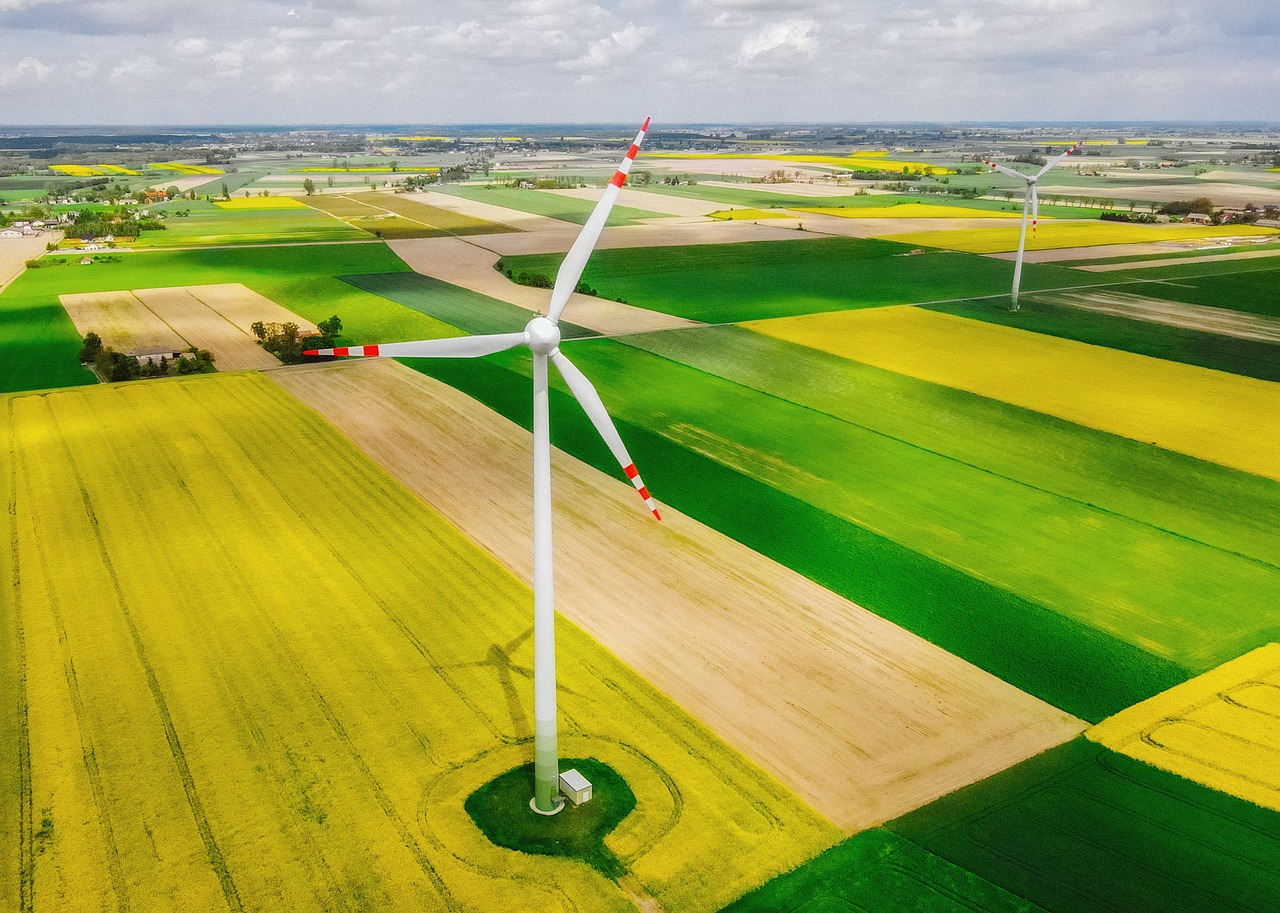
Impact on Indigenous Communities
The impact of nuclear energy on Indigenous communities is a complex and multifaceted issue that requires careful consideration. For many Indigenous peoples, nuclear projects often come with a host of challenges that intersect with their rights, cultural heritage, and environmental justice. It's not just about the energy; it's about the land, the history, and the future. When nuclear facilities are proposed near Indigenous lands, it raises significant ethical questions about consent, environmental stewardship, and the potential for long-term consequences that could affect generations to come.
One of the primary concerns is land rights. Indigenous communities often have a deep spiritual and cultural connection to their land, which is integral to their identity. The establishment of nuclear power plants or waste disposal sites on or near these lands can lead to a profound sense of loss and displacement. Many Indigenous groups argue that they have not been adequately consulted about these projects, which can lead to a breach of trust between them and the government or corporations involved. This situation is compounded by the historical context of colonization, where Indigenous voices have frequently been marginalized in decision-making processes.
Moreover, the issue of environmental justice is paramount. Nuclear energy projects can pose significant risks to the surrounding environment, including contamination of water sources and ecosystems. Indigenous communities often bear the brunt of these environmental impacts, as they rely on natural resources for their sustenance and cultural practices. When nuclear waste is stored near Indigenous lands, it raises ethical questions about who is responsible for potential contamination and the long-term health effects that could ensue.
In many cases, the benefits of nuclear energy, such as job creation and economic development, are not equitably distributed. While some Indigenous communities may receive certain economic opportunities from nuclear projects, others may find themselves facing the negative consequences without adequate compensation or support. This disparity highlights a critical issue of equity in energy access and the distribution of risks and benefits. It begs the question: who truly benefits from nuclear energy, and at what cost?
Furthermore, the cultural implications are significant. Many Indigenous peoples view the land as a living entity, deserving of respect and protection. Nuclear projects can disrupt traditional practices and ways of life, leading to a cultural erosion that is difficult to quantify. The ethical dilemma here is profound: how do we balance the need for energy with the rights and traditions of Indigenous communities?
To address these concerns, it is essential for policymakers and energy companies to engage in meaningful dialogue with Indigenous communities. This means not only seeking consent but also ensuring that Indigenous voices are heard and respected in all stages of nuclear energy planning and implementation. Collaborative approaches that integrate Indigenous knowledge and perspectives can lead to more sustainable and equitable energy solutions.
In conclusion, the impact of nuclear energy on Indigenous communities is a pressing ethical issue that requires urgent attention. By acknowledging the historical injustices and actively working towards equitable solutions, we can foster a future where energy development respects the rights and cultures of all communities involved.
- What rights do Indigenous communities have regarding nuclear energy projects?
Indigenous communities have the right to be consulted and to give or withhold consent for projects that affect their land and resources, as recognized by international agreements such as the UN Declaration on the Rights of Indigenous Peoples. - How does nuclear energy affect the environment?
Nuclear energy production can lead to environmental concerns such as radioactive waste, potential contamination of land and water, and impacts on local ecosystems. - What are the long-term implications of nuclear waste disposal for Indigenous communities?
The long-term implications can include health risks, environmental degradation, and the burden of managing waste that could last for thousands of years, often without adequate support or resources.

Global Perspectives on Nuclear Energy Ethics
Nuclear energy is a subject that stirs passionate debate around the globe, shaped by a myriad of cultural, political, and economic factors. Each country approaches the ethics of nuclear energy differently, influenced by its unique historical context and societal values. For instance, in countries like France, nuclear energy is seen as a cornerstone of energy independence and a critical component in the fight against climate change. With around 70% of its electricity generated from nuclear power, France has positioned itself as a leader in the nuclear sector, promoting the technology as a sustainable alternative to fossil fuels. The French government emphasizes the importance of nuclear energy in achieving carbon neutrality, showcasing a strong public trust in regulatory frameworks and safety measures.
On the other hand, countries such as Germany have adopted a more cautious stance, especially following the Fukushima disaster in 2011. The German government initiated a significant policy shift known as the "Energiewende," which aims to phase out nuclear power in favor of renewable energy sources. This shift reflects a deep-seated public concern about safety and environmental risks associated with nuclear energy, leading to widespread protests and a strong anti-nuclear movement. The ethical implications here revolve around the balance between energy security and environmental safety, raising questions about the responsibilities of governments to protect their citizens.
In countries like Japan, the ethical landscape is complicated by historical events. The legacy of Hiroshima and Nagasaki looms large, influencing public perception and policy decisions. After the Fukushima incident, Japan faced a moral dilemma: how to reconcile its reliance on nuclear energy with the need for safety and public trust. The government has since worked to rebuild that trust through stringent safety regulations and transparency, although skepticism remains among the populace. This situation highlights the ethical responsibility of governments to prioritize the health and safety of their citizens while also ensuring energy sustainability.
Moreover, in developing countries, the conversation around nuclear energy is often tied to issues of equity and access. Nations like India and South Africa view nuclear energy as a means to achieve energy security and economic development. However, the ethical considerations here are multifaceted. On one hand, nuclear energy can provide a reliable power source that supports industrial growth; on the other hand, it raises concerns about the potential risks to vulnerable communities. The challenge lies in ensuring that the benefits of nuclear energy are equitably distributed while minimizing the risks associated with its production and waste management.
To further illustrate the diverse perspectives on nuclear energy ethics globally, consider the following table:
| Country | Perspective on Nuclear Energy | Key Ethical Considerations |
|---|---|---|
| France | Pro-nuclear, emphasizing energy independence | Trust in regulatory frameworks, sustainability |
| Germany | Anti-nuclear, focusing on renewable energy | Public safety, environmental concerns |
| Japan | Cautious, rebuilding trust post-Fukushima | Health and safety, transparency |
| India | Pro-nuclear, for economic development | Equity, risk to vulnerable communities |
As we examine these varied perspectives, it becomes clear that the ethics of nuclear energy is not a one-size-fits-all scenario. Each nation grapples with its own set of challenges and values, leading to a complex tapestry of beliefs surrounding this powerful energy source. Engaging in open dialogue and understanding these global perspectives is crucial for shaping future policies and fostering a responsible approach to nuclear energy.
- What are the main ethical concerns surrounding nuclear energy? Ethical concerns include safety risks, radioactive waste management, and the equitable distribution of energy resources.
- How do different countries view nuclear energy? Perspectives vary significantly; some countries embrace it for energy independence, while others reject it due to safety concerns.
- What role does public perception play in nuclear energy policies? Public perception heavily influences policy decisions, as trust in regulatory bodies can sway support for or against nuclear initiatives.
- What technological advancements are being made in nuclear energy? Innovations like small modular reactors and improved waste management techniques are being developed to address safety and environmental concerns.
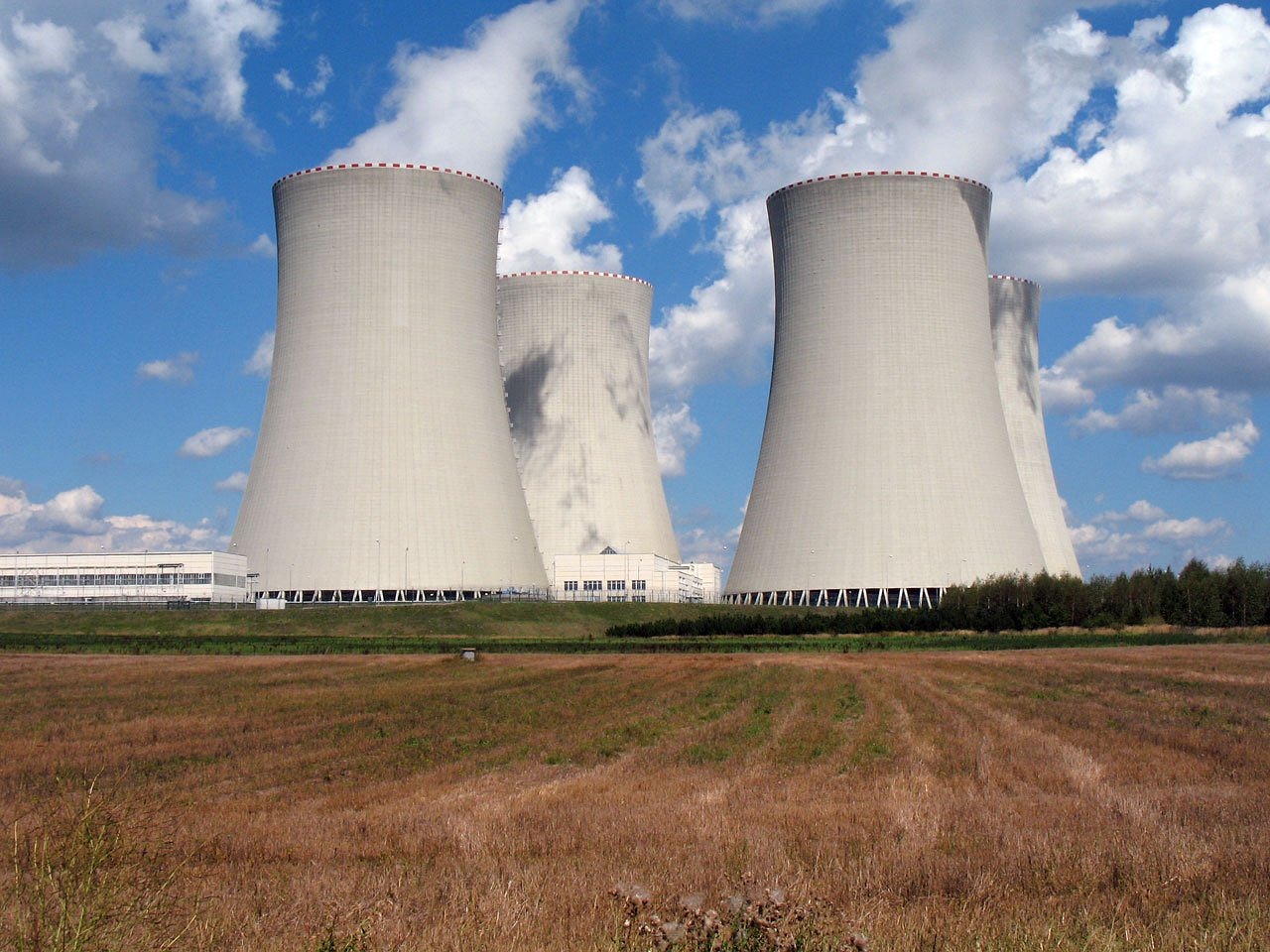
The Future of Nuclear Energy
The future of nuclear energy is a topic that sparks both excitement and apprehension among scientists, policymakers, and the general public alike. As we transition into an era where climate change and energy sustainability are at the forefront of global discussions, the role of nuclear energy is being reevaluated. Can nuclear energy be a viable solution to our energy needs while minimizing environmental impact? The answer lies in innovative technologies and ethical considerations that must guide our path forward.
One of the most promising advancements on the horizon is the development of Small Modular Reactors (SMRs). These compact nuclear reactors are designed to be built in factories and shipped to sites for assembly, offering a more flexible and cost-effective approach to nuclear energy. Unlike traditional large-scale reactors, SMRs can be deployed in remote areas and can operate independently or in conjunction with renewable energy sources. This modularity not only enhances safety but also reduces the risk associated with large-scale nuclear projects, making them more appealing to communities wary of nuclear power.
Additionally, the concept of nuclear fusion—the process that powers the sun—holds immense potential for the future of energy. Unlike nuclear fission, which splits atoms and produces radioactive waste, fusion combines light atomic nuclei to release energy without the same level of hazardous byproducts. Researchers are making strides toward achieving practical fusion energy, and if successful, it could revolutionize our energy landscape, providing a clean, virtually limitless source of power. However, the ethical implications of investing in fusion research versus other renewable technologies must be carefully considered, particularly in terms of funding and resource allocation.
While these advancements are promising, the ethical landscape surrounding nuclear energy remains complex. As we innovate, we must also address the legacy of nuclear waste and the long-term implications for future generations. Effective waste management strategies are essential to ensure that we do not pass on the burdens of our energy choices to those who come after us. This includes exploring advanced technologies for waste recycling and secure long-term storage solutions. Furthermore, engaging in transparent discussions with communities affected by nuclear projects is crucial in building trust and ensuring that all voices are heard in the decision-making process.
The public perception of nuclear energy will also play a significant role in shaping its future. As communities grapple with the duality of nuclear power—its potential to provide low-carbon energy versus the risks associated with accidents and waste—educational initiatives and open dialogues are vital. Trust in regulatory bodies and the media's portrayal of nuclear energy will influence how society embraces or rejects nuclear solutions. In this regard, fostering a culture of transparency and accountability will be essential to mitigate fears and build a more informed public.
In summary, the future of nuclear energy is not just about technological advancements; it is also about ethical considerations, community engagement, and public perception. As we look ahead, it is imperative to balance innovation with responsibility, ensuring that the choices we make today do not compromise the well-being of future generations. The path forward may be fraught with challenges, but with a commitment to ethical practices and sustainable solutions, nuclear energy could play a pivotal role in achieving a cleaner, more sustainable energy future.
- What are Small Modular Reactors (SMRs)? SMRs are compact nuclear reactors designed for flexibility and safety, allowing for easier deployment and reduced risks compared to traditional reactors.
- What is nuclear fusion? Nuclear fusion is a process that combines light atomic nuclei to release energy, potentially offering a clean and virtually limitless power source without the hazardous byproducts of nuclear fission.
- How is nuclear waste managed? Effective nuclear waste management involves secure long-term storage solutions and exploring advanced recycling technologies to minimize the burden on future generations.
- Why is public perception important for nuclear energy? Public perception influences policy decisions and community acceptance of nuclear projects, making trust and transparency essential for the future of nuclear energy.
Frequently Asked Questions
- What are the main ethical concerns surrounding nuclear energy?
There are several ethical concerns related to nuclear energy, including the risks of radiation exposure, the long-term management of radioactive waste, and the potential for catastrophic accidents. Additionally, the distribution of benefits and risks among different communities raises questions of social justice and equity.
- How does nuclear energy impact the environment?
Nuclear energy has both positive and negative environmental impacts. On one hand, it produces low greenhouse gas emissions compared to fossil fuels, which is beneficial for climate change mitigation. On the other hand, the management of radioactive waste and the potential for environmental contamination from accidents pose significant risks.
- What is the significance of radioactive waste management?
Radioactive waste management is crucial because it involves the safe disposal and containment of hazardous materials that can remain toxic for thousands of years. The ethical implications arise from the burden placed on future generations to manage these wastes, leading to debates on the responsibility of current generations.
- How does public perception affect nuclear energy policies?
Public perception plays a vital role in shaping nuclear energy policies. Trust in regulatory bodies, the media, and the overall transparency of the nuclear industry can influence community acceptance or opposition. Misinformation and fear can lead to resistance, while education and outreach can foster understanding and support.
- What are the health risks associated with nuclear energy?
Health risks related to nuclear energy primarily stem from radiation exposure, which can occur during accidents or from improper waste management. Regulatory bodies implement safety standards to minimize these risks, but public concerns about potential health impacts remain a significant part of the ethical debate surrounding nuclear energy.
- How do social justice issues relate to nuclear energy?
Social justice issues in nuclear energy focus on how the benefits and risks are distributed across different communities. Often, marginalized groups, including Indigenous peoples, may face disproportionate impacts from nuclear projects, raising ethical questions about equity and the right to a safe environment.
- What are the global perspectives on nuclear energy ethics?
Different countries approach the ethics of nuclear energy based on their cultural, political, and economic contexts. Some nations embrace nuclear energy as a solution to energy needs and climate change, while others prioritize renewable sources or have strong anti-nuclear movements influenced by historical events.
- What does the future hold for nuclear energy?
The future of nuclear energy may involve the development of new technologies, such as small modular reactors and fusion energy, which promise to address some of the ethical concerns associated with traditional nuclear power. However, ongoing debates about safety, waste management, and public acceptance will shape its role in a sustainable energy landscape.



















